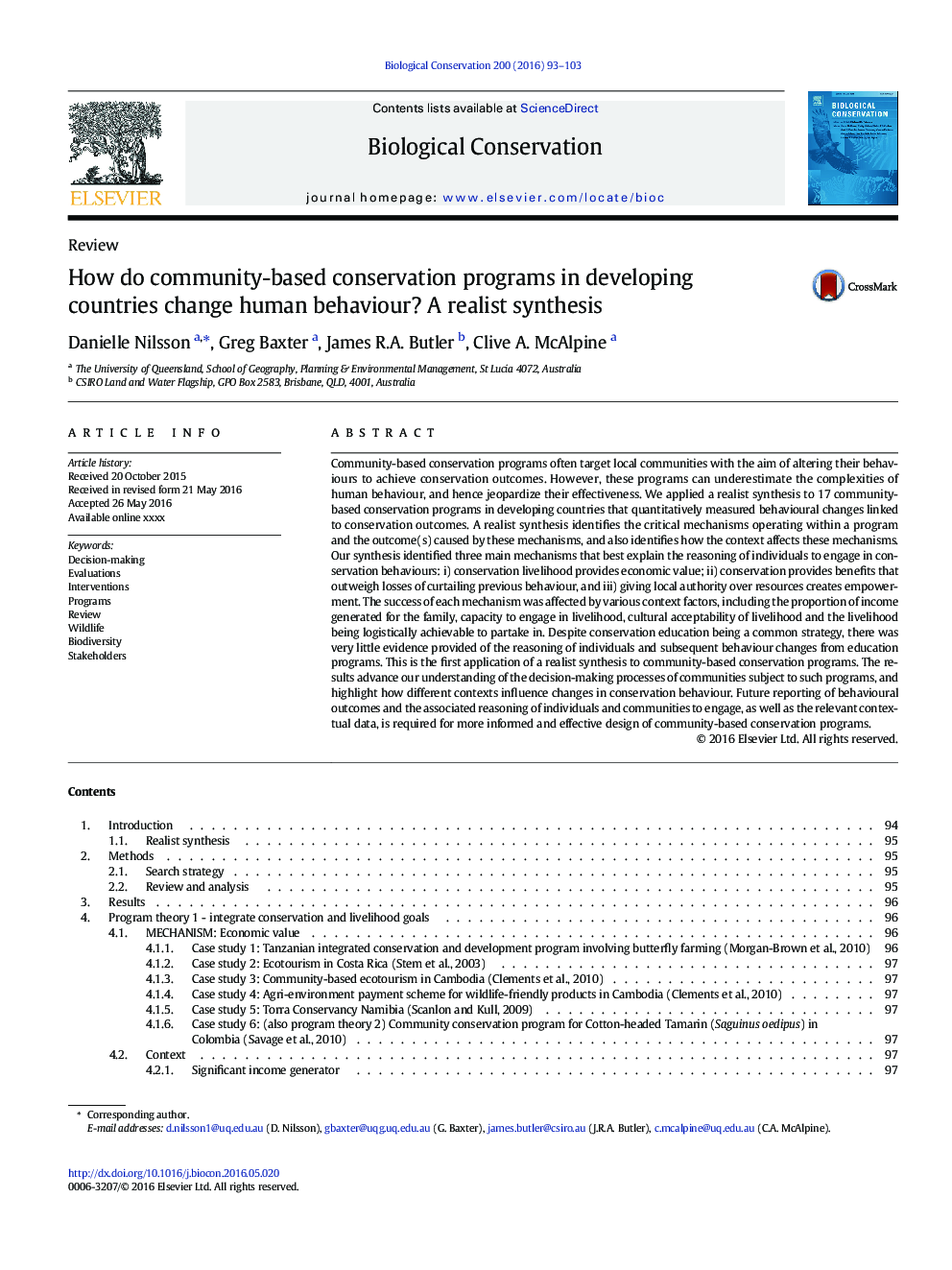| کد مقاله | کد نشریه | سال انتشار | مقاله انگلیسی | نسخه تمام متن |
|---|---|---|---|---|
| 6298274 | 1617901 | 2016 | 11 صفحه PDF | دانلود رایگان |
عنوان انگلیسی مقاله ISI
How do community-based conservation programs in developing countries change human behaviour? A realist synthesis
ترجمه فارسی عنوان
چگونه برنامه های حفاظت محله ای در کشورهای در حال توسعه چگونه رفتار انسان را تغییر می دهند؟ سنتز واقع گرایانه
دانلود مقاله + سفارش ترجمه
دانلود مقاله ISI انگلیسی
رایگان برای ایرانیان
کلمات کلیدی
تصمیم سازی، ارزیابی ها، مداخلات، برنامه ها، مرور، حیات وحش، تنوع زیستی، سهامداران،
موضوعات مرتبط
علوم زیستی و بیوفناوری
علوم کشاورزی و بیولوژیک
بوم شناسی، تکامل، رفتار و سامانه شناسی
چکیده انگلیسی
Community-based conservation programs often target local communities with the aim of altering their behaviours to achieve conservation outcomes. However, these programs can underestimate the complexities of human behaviour, and hence jeopardize their effectiveness. We applied a realist synthesis to 17 community-based conservation programs in developing countries that quantitatively measured behavioural changes linked to conservation outcomes. A realist synthesis identifies the critical mechanisms operating within a program and the outcome(s) caused by these mechanisms, and also identifies how the context affects these mechanisms. Our synthesis identified three main mechanisms that best explain the reasoning of individuals to engage in conservation behaviours: i) conservation livelihood provides economic value; ii) conservation provides benefits that outweigh losses of curtailing previous behaviour, and iii) giving local authority over resources creates empowerment. The success of each mechanism was affected by various context factors, including the proportion of income generated for the family, capacity to engage in livelihood, cultural acceptability of livelihood and the livelihood being logistically achievable to partake in. Despite conservation education being a common strategy, there was very little evidence provided of the reasoning of individuals and subsequent behaviour changes from education programs. This is the first application of a realist synthesis to community-based conservation programs. The results advance our understanding of the decision-making processes of communities subject to such programs, and highlight how different contexts influence changes in conservation behaviour. Future reporting of behavioural outcomes and the associated reasoning of individuals and communities to engage, as well as the relevant contextual data, is required for more informed and effective design of community-based conservation programs.
ناشر
Database: Elsevier - ScienceDirect (ساینس دایرکت)
Journal: Biological Conservation - Volume 200, August 2016, Pages 93-103
Journal: Biological Conservation - Volume 200, August 2016, Pages 93-103
نویسندگان
Danielle Nilsson, Greg Baxter, James R.A. Butler, Clive A. McAlpine,
